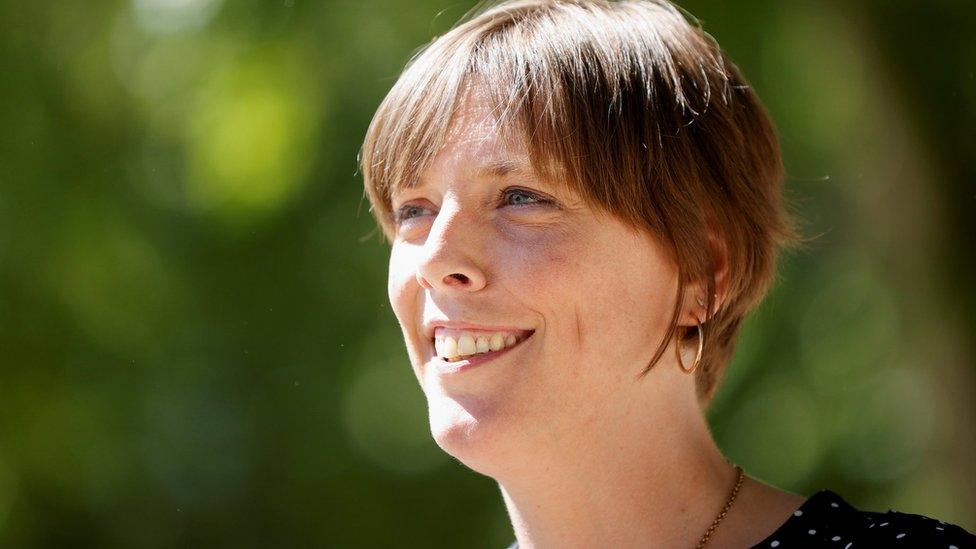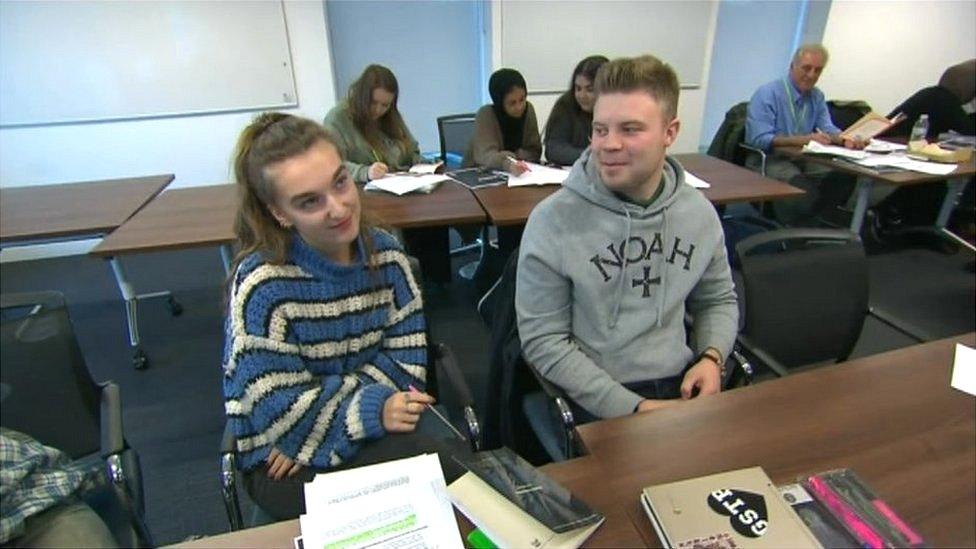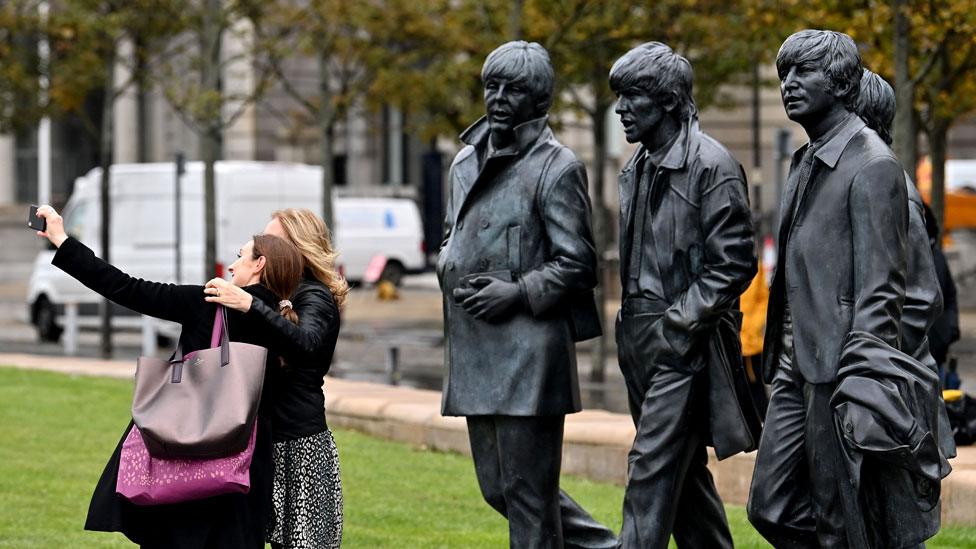MP Jess Phillips praises Brummie accent
- Published

MP Jess Phillips said her father had warned her as a child that she would not be taken seriously
A Birmingham MP has said her accent has been her "greatest gift", after a survey found almost half of UK workers had been mocked for theirs.
Speaking on BBC Radio 4's Today show, Yardley MP Jess Phillips hailed her Brummie accent and encouraged others to be proud of theirs.
She was joined by broadcaster Adrian Chiles, who hails from Quinton, who said his accent was an "advantage".
The survey forms part of the Accent Bias in Britain project.
The research was carried out by Professor Devyani Sharma from Queen Mary University London and funded by Sutton Trust.
It revealed 46% of workers had faced jibes about their accents, while those with northern English or Midlands accents were more likely to worry about the way they spoke.
An entrenched "hierarchy of accent" caused social anxiety throughout some people's lives, the report concluded.

Broadcaster and presenter Adrian Chiles says he used to be underestimated because of his Brummie accent
"When I was a kid, my dad warned us we wouldn't be taken seriously because my vowel sounds were very Brummie," Ms Phillips said.
"You still get this assumption that we go down the mines or I work in a car factory because of the way I sound."
'Be yourself'
She said one of her main roles as an MP was to communicate with regular people, adding that her accent meant they often felt she understood their situations.
Mr Chiles meanwhile urged people to "be yourself".
While acknowledging he might have subconsciously moderated his Brummie vowels over the years to make them more "acceptable", he said speaking "clearly" was far more important than people's accents.
"I have found it to my advantage in life... people always underestimated me. They hear a Brummie accent and they think you're thick," he said.
"People's expectations were always very low.

Students Olivia Fellows and Joe Wood said they felt they had been judged because of their accents
"It meant I had to do relatively little to impress them. I only had to string together three coherent sentences and people looked at me as if I was Stephen Hawking."
Two language students at Wolverhampton University in the Black Country said they felt they had been judged because of their accents.
"In professional settings, work, education, there's definitely that comparison of backgrounds, there's an internal bias that comes with it," said Olivia Fellows, who is studying English language and literature.
"You can hear where people come from in terms of class as well as location, how you are defined by your accent. It does say a lot about who you are."
'Peaky Blinder'
Joe Wood, an English and secondary education student, said he felt his accent may have affected his prospects.
"Three years ago before I went to university I did army officers selection board," he said.
"I was joined by a lot of people who were private school educated, grammar school educated and had what you'd call RP (received pronunciation).
"I felt, not marginalised, but I didn't feel I belonged in that kind of sphere due to my accent.
"There was obviously a few people there that saw my accent was there and actually called me a Peaky Blinder - so there was a difference there."

Follow BBC West Midlands on Facebook, external, Twitter, external and Instagram, external. Send your story ideas to: newsonline.westmidlands@bbc.co.uk, external
Related topics
- Published3 November 2022
